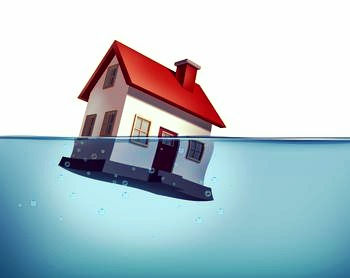“I-REFI” HELP FOR UNDERWATER MORTGAGES
- Douglas M. Matton
- Jul 19, 2016
- 3 min read

A few months ago, I wrote an article about how banks are not writing down mortgages for people who need it. In the vast majority of cases, that continues to be true. In an effort to help underwater homeowners the Illinois government is launching a new program. Whether that program will be effective and whether it will be expanded remains to be seen.
Q: What does it mean to be “underwater” on a home?
A: It means that the homeowner owes more on his mortgage than his or her house is actually worth.
Q: Is this common presently in Illinois?
A: Unfortunately, yes, it is. Approximately one out of every five homes, or twenty percent (20%) of homeowners are underwater on their residence.
Q: What is the “I-Refi” program?
A: It is a program put in to place by the Illinois Housing Development Authority (IHDA), which will give assistance to people who owe more on their home than it is worth.
Q: What are the requirements to be eligible for the program?
A: A homeowner must owe at least ten percent (10%) more on his or her home than that home is worth. The homeowner cannot be underwater by more than $50,000. Furthermore, the homeowner must be current on his or her mortgage over the past twelve (12) months. Additionally, the applicant must reside in the home itself.
Q: Are there any other qualifications that need to be met in order to get approved for the program?
A: Yes, a homeowner’s income must be at a certain level. A couple with a combined income of up to $79,000 would qualify. A three person family could have a combined income of up to $91,000. So, if your income is higher than those limits, then you will not qualify.
Q: How much financial assistance can I get?
A: A homeowner can get up to $50,000 in assistance, but realistically, the average amount provided will be approximately half of that, or $25,000.
Q: How does it work?
A: The homeowner is provided the funds to pay off, or pay down, the existing mortgage. Then, the money provided to the homeowner would be forgiven, and the homeowner would not have to pay that money back. It is a refinance program, where the old mortgage is paid off, and the new mortgage is a fixed rate mortgage at the current market rate---which is now 4.125% for a conventional loan, and 3.5% for a government insured loan (through the FHA).
Q: How many people in Illinois will this program help?
A: Unfortunately, it will only be provided to approximately 1,800 homeowners in Illinois. Hopefully, if the program is a success, then maybe the IHDA will extend the program to more people and applicants.
Q: When does the program do in to place?
A: It is set to begin on August 1, 2016.
Q: How can I start the process or apply for the program?
A: You can go online to www.ihda.org/Refi, or you can call the IHDA at (877)456-2656.
Q: Are there any other situations in what situation will the bank write down a loan balance?
A: Possibly. If you sue your bank for a violation of a state or federal law which governs the mortgage.
Q: What laws apply to mortgages?
A: The Truth In Lending Act and the Real Estate Settlement Procedures Act have certain requirements that a bank must follow with respect to a mortgage. If those requirements are not followed, then a homeowner can sue their lender in either state or federal court. Such a lawsuit can give a homeowner the leverage needed to get the bank to reduce the principal on the loan.
Q: How can I find out if my lender violated the law?
A: You should bring all of your mortgage documents to an experienced attorney who can review those documents. Once those documents are properly reviewed and analyzed then you will know whether or not you have the ability to sue your bank for a violation of the Truth In Lending Act, the Real Estate Settlement Procedures Act, or any other state or federal law. If you do have the ability to sue your bank, then you could use that as leverage to get your bank to drastically reduce the principal balance of your loan.




































Comments